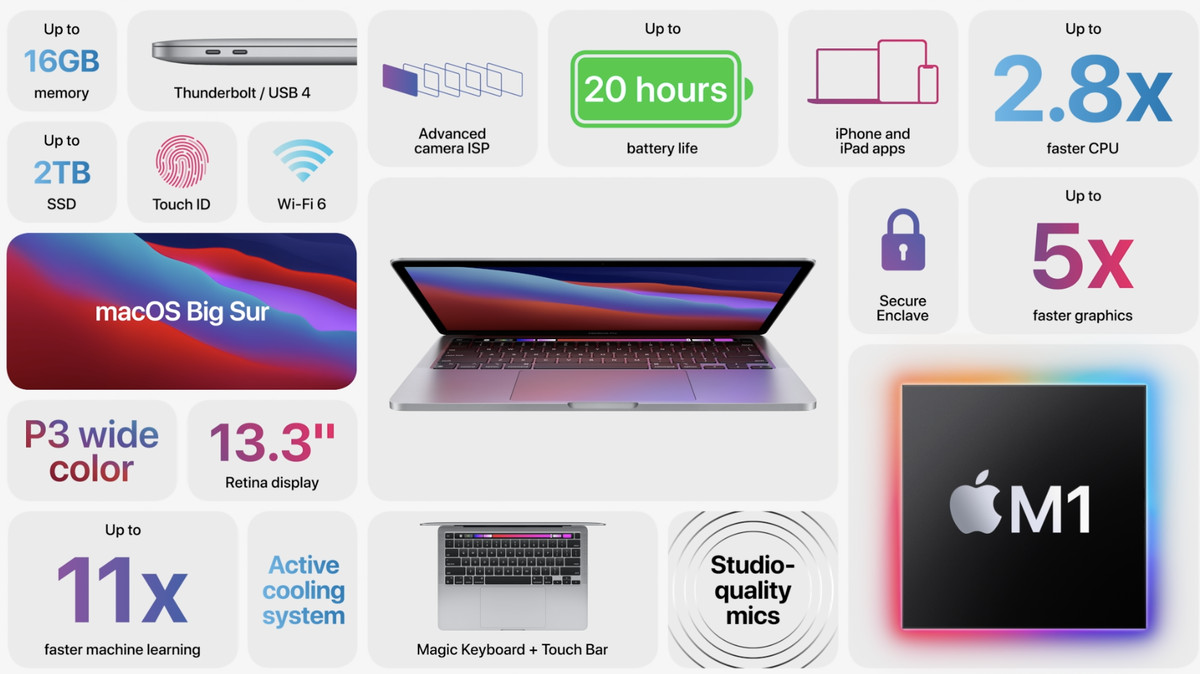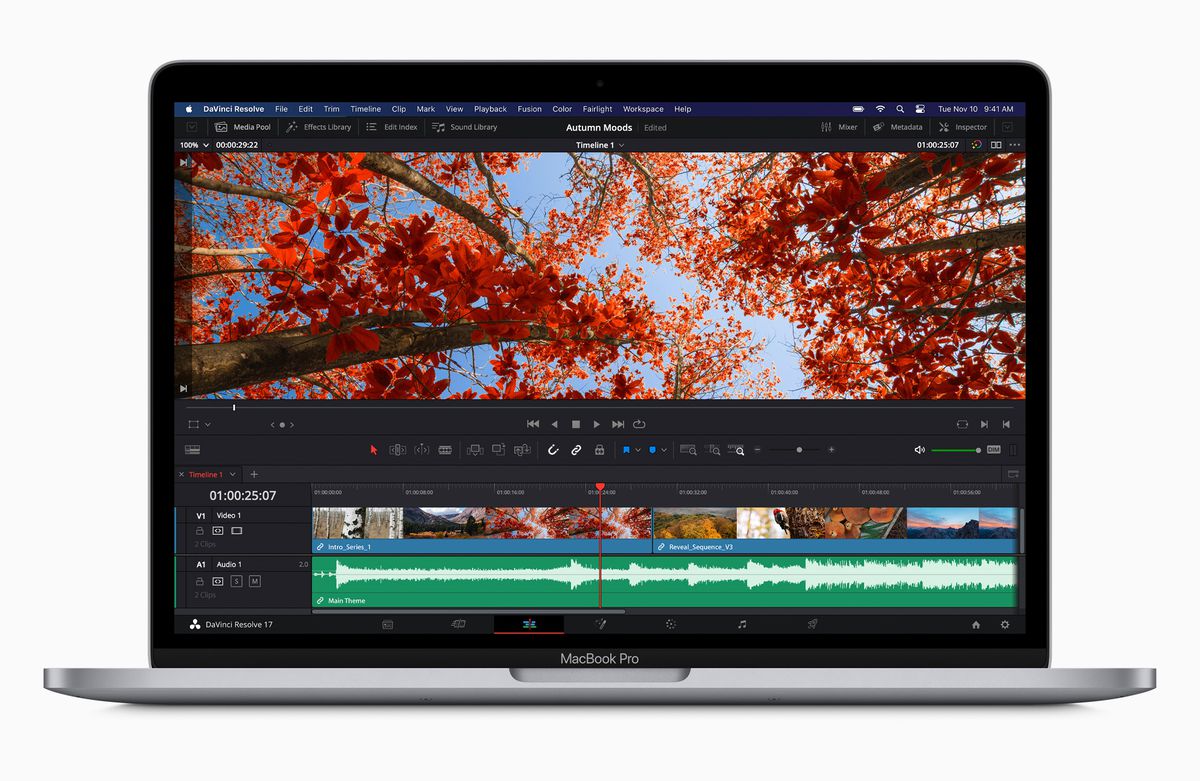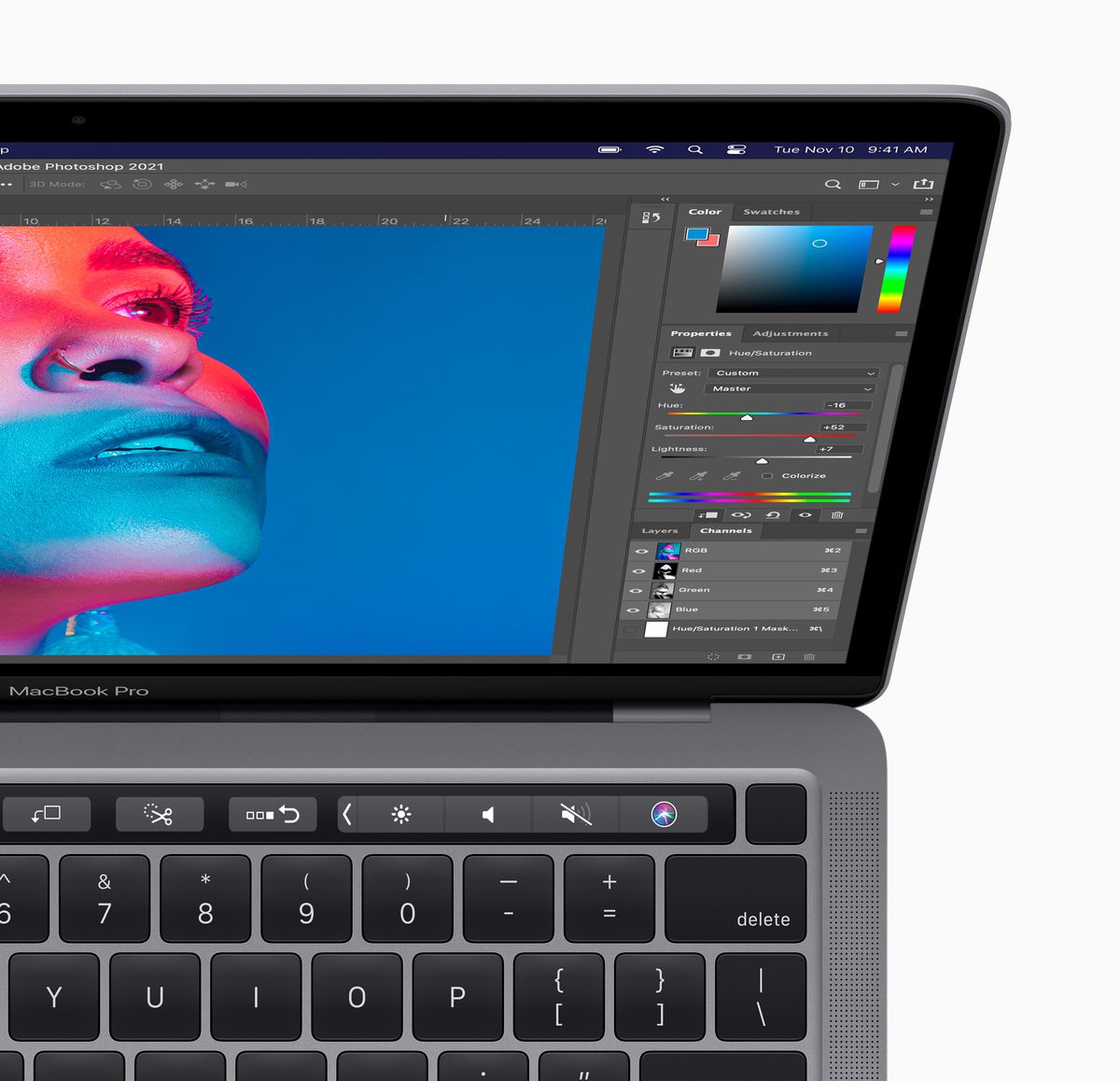Apple has announced its first MacBook Pro laptop that will run on an Apple-designed processor at its “One More Thing” event, ushering in a new era of Mac computers.
It’s not just that Apple is making an Arm-based Mac; it’s that Apple is specifically making an Arm-based MacBook Pro, products it has emphasized as core parts of its lineup for both creative and technical professionals.
The new MacBook Pro comes in a 13-inch size and starts at $1,299. It replaces the previous entry-level MacBook Pro model. (The high-end model, with four Thunderbolt ports, will still be sold as usual.) The new MacBook Pro will feature Apple’s new M1 processor, which the company says features the “world’s fastest CPU core,” the fastest integrated graphics, and big power and performance gains compared to the Intel chips it had previously used. It’ll also launch with macOS 11 Big Sur, which Apple says it designed specifically to take advantage of the new hardware.
Apple says that performance on the new 13-inch MacBook Pro is 2.8 times as fast, with graphics that are up to five times faster than the previous generation. And unlike the new MacBook Air, it still features an active cooling fan system. There’s still a Touch Bar, along with two Thunderbolt 4 ports (located on the left side of the laptop).

Battery life is also getting a big jump: up to 17 hours of web browsing and 20 hours of video playback. Apple says that’s 10 hours longer than before and the longest battery life ever offered on a Mac.
Configuration options are either 8GB or 16GB of RAM along with 256GB, 512GB, 1TB, and 2TB SSD options. (Apple will be offering just a single M1 processor option, however.)
It’s a big leap forward, not just for Apple’s in-house chips, but for Arm-based laptops in general, which have largely been relegated to ultralight form factors and devices like the Lenovo Flex 5G, Samsung Galaxy Book S, or the Surface Pro X. No one has made an Arm-based laptop that promises the kind of performance that Apple claims the new MacBook Pros can offer.
Apple has been preparing for this since it first announced that it’d be switching over to its own chips, with the company already showing off applications like Microsoft Office and Adobe Photoshop and Lightroom running on Apple chips back in June. (Although it’ll clearly take some time to roll those out: Lightroom won’t be available on Apple silicon until next month, and other key apps, like Photoshop, won’t launch until 2021.) And of course, Apple’s own pro-level applications, like Final Cut Pro or Logic, have already been fully ported to work on Apple silicon Macs.

The new Apple silicon MacBook Pro won’t just run those professional applications, though: it’ll also offer compatibility with the massive library of existing iOS and iPad apps, thanks to the shared chipset, which could vastly expand the app options available for users at launch.
The company has also been designing its own processors for almost a decade, going back to its A4 chipset from the original iPad and the iPhone 4. And while Apple’s A-series chips have only grown more powerful over time (scaling up to products like the A12Z, which powers the iPad Pro and which Apple will have you believe offers performance on par with a laptop). Apple has used its own chips inside recent Macs, like the T2 security chip or the repurposed Apple Watch processor that powers the MacBook Pro’s touch bar.
But today’s release marks a considerable shift, one that will see those same iPhone and iPad chips — or at least, chips that are built on the same architectural foundation — make their way to macOS computers.

The fact that the company feels confident enough in its estimate of the Arm-based chips to offer a machine that’s designed for professional work (at least in name) is significant to see. That said, Apple has badly misjudged professional device needs in the past, with the company’s much-lambasted 2015 Mac Pro, in particular, standing out as a huge miss. It’s entirely possible that the new MacBook Pro could suffer the same fate.
The new MacBook Pros aren’t the only new Macs running on Apple silicon. The company also announced a new 13-inch MacBook Air and a new Mac mini, both of which run on an M1 chip.
The new 13-inch MacBook Pro will start at $1,299, with preorders starting today ahead of the November 17th launch.
https://www.theverge.com/2020/11/10/21552876/apple-macbook-pro-arm-silicon-m1-chip-processor-cpu-gpu-specs-price-release-date

